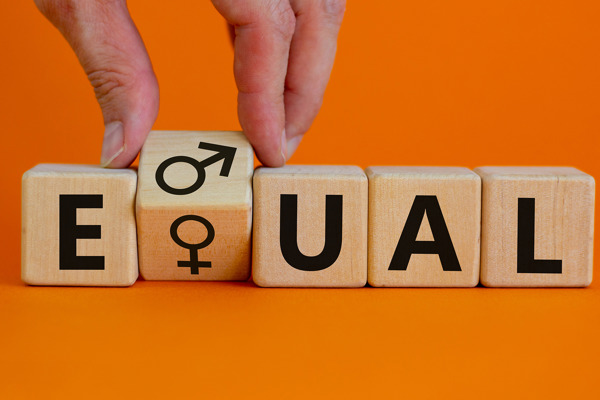It was highlighted in the debate that the lack of support and recognition for dads is largely a product of history but one which continues to reflect and reinforce cultural assumptions about traditional gender roles. By redressing that balance, not only does this allow dads to spend more time with their children, but research from countries such as Iceland, Slovenia, Sweden, Finland and Norway demonstrates that a higher level of paternity leave correlates with a higher level of gender equality in those countries.
Of course, as was recognised by the debate, the current system of paternity leave and, indeed, shared parental leave are reserved issues for Westminster, where the case for change is also being made. In March 2018 the Women and Equalities Select Committee argued that dads should get the option of 12 weeks' paid "use it or lose it" paternity leave, to try and encourage greater male involvement in the young lives of children. The committee chair, Maria Miller, highlighted that parental leave and the gender pay gap were closely linked, commenting "Until we get it right for dads, we can't get it right for mums".
As such, given the continuing interest in improving the lives of working families in this way, what positive signs are there of change on the horizon?
The UK Government's response to the Committee in June 2018 was that there was a "broad based debate" to be had on improving rights, based on good quality information gathering about the way existing entitlements were used in practice. A commitment was given to gather more information this year from employers relating to the take-up of paternity leave and whether employers opt to pay this above the statutory minimum. It pointed out that its review of shared parental leave (SPL) and pay was already underway and the findings there would be used to consider whether and how the present system of SPL may need to be reformed. Options to be considered "may include the consideration of a dedicated period of leave for fathers and partners."
It is not difficult to find critics of the current system of SPL. The take-up rate was estimated early in 2018 as being embarrassingly low, at around 2%.
While the UK Government, in response, launched a publicity campaign "Share the Joy" to raise awareness of SPL among parents, survey evidence gathered by Working Families had already made clear that this was only one aspect of the problem. That evidence suggests perhaps the most significant issue is that one third of fathers simply cannot afford to take SPL (the rate of Shared Paternity Pay currently being £145.18 per week).
It remains to be seen whether the evidence-gathering this year will lead to the much-needed reform being called for. In the meantime, the UK Government's earlier plans to extend SPL to grandparents appears to have been placed on permanent hold, there being little point rolling out the current, unloved, system more widely.
For the time being, employers and employment lawyers alike will grapple with translating the notorious complexity of the SPL requirements into policies and guidance that are kept as clear and simple as possible.
We can also expect the debate to continue as to whether or not it amounts to discrimination under the Equality Act 2010 to pay enhanced pay to mums on maternity leave but not enhance the pay available to those on shared paternity leave. To date those arguments have been difficult to establish.
In Capita Customer Management Limited v Ali the EAT held, in April this year, that the appropriate comparator of a male employee on SPL was a female employee on SPL, holding no direct discrimination therefore arose. Hot on the heels of that case was the EAT decision three weeks later in Hextall v Chief Constable of Leicestershire Police looking at the question of indirect discrimination and whether non-enhanced SPL placed men seeking leave to care for a new-born child at a disadvantage compared to a woman in similar circumstances. The decision in Hextall does not determine this interesting question as it found the Employment Tribunal had failed to properly identify the disadvantage being argued for and the relevant pool for comparison and remitted the case back for reconsideration by a fresh Tribunal.
However, what does emerge from the decision is that the hurdle of disparate impact within indirect discrimination claims seems likely to be cleared, with the real battleground in such cases focusing on whether an employer can objectively justify any differential treatment between maternity leave and shared parental leave.
Most are in agreement that shared parental leave has the potential to be much more transformative than it has been to date. Whether the reform which emerges from the current review of the present system will be bold enough, or whether new mums will continue to be left holding the baby, is another question.
Alan Delaney is also a director on the board of Fathers Network Scotland.


